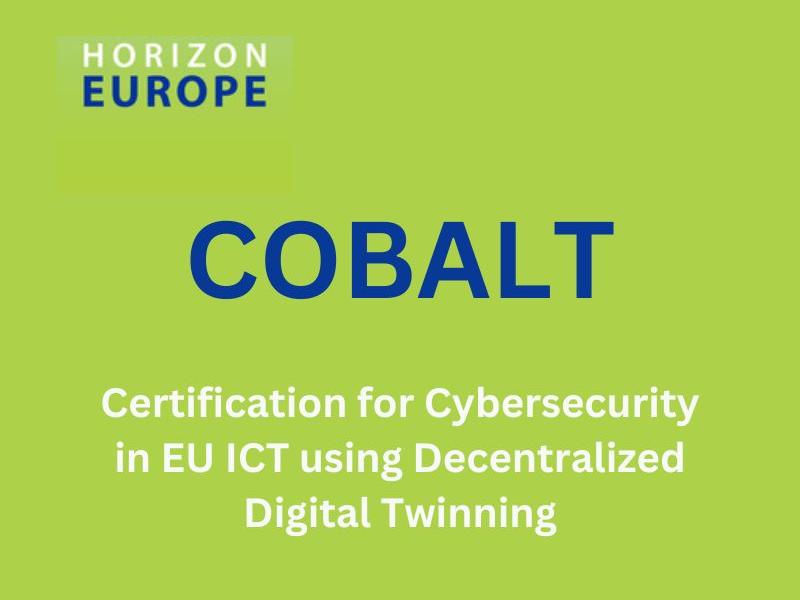
COBALT
Certification for Cybersecurity in EU ICT using Decentralized Digital Twinning
Julie Arteza
01 November 2023
31 October 2026
EC funded project
COBALT proposes the introduction of a Common Certification Model (CCM) for European industries, leveraging existing standards and composing a unified cybersecurity namespace for ICT processes. The proposal will uphold the paradigm of Digital Twinning (DT) via the creation of Digital Threads and extend it in a vertical agnostic approach across different industries, including Quantum computing (involving FHG’s Quantum Computer) and I4.0. The COBALT DT will explore technology disruption mainly focusing on AI and High-Performance Computing (HPC) via the analysis and certification of Quantum Processing Oracles (a Quantum Computer exposure operation that is used as input to another algorithm), and how different enablers of these paradigms can be certified in a vertical agnostic manner. Quantum is destined to play a pivotal role in Europe’s AI and Computing sovereignty, thus protecting such infrastructure and its relevant processes (Quantum Oracles), should be of top priority.
Along with common information models, COBALT acknowledges the importance of trusted information exchange a critical feature for an effective certification process across different industries, especially regarding cybersecurity. Therefore, COBALT will focus on the integration of International Data Spaces (IDS) primitives as a basis for the data sharing platform across different stakeholders. IDS currently proposes different models and procedures to share information and data across different spaces in a trusted manner between two parties, this can facilitate the process to build a trusted end-to-end certification framework across different industry stakeholders.
Finally, COBALT aims to build a decentralized solution to further accelerate technology adoption and harmonization for the different use cases to be adopted. For the proposed CCM to function as a long term and sustainable European solution for certification, it needs to adapt and flex according to different environment conditions.
Resources for EU Research
Resources for SMEs
News & Events
Reports
Cyberwatching.eu has received funding from the European Union’s Horizon 2020 research and innovation programme under grant agreement No 740129. The content of this website does not represent the opinion of the European Commission, and the European Commission is not responsible for any use that might be made of such content. Privacy Policy | Disclaimer / Terms and Conditions of Use

